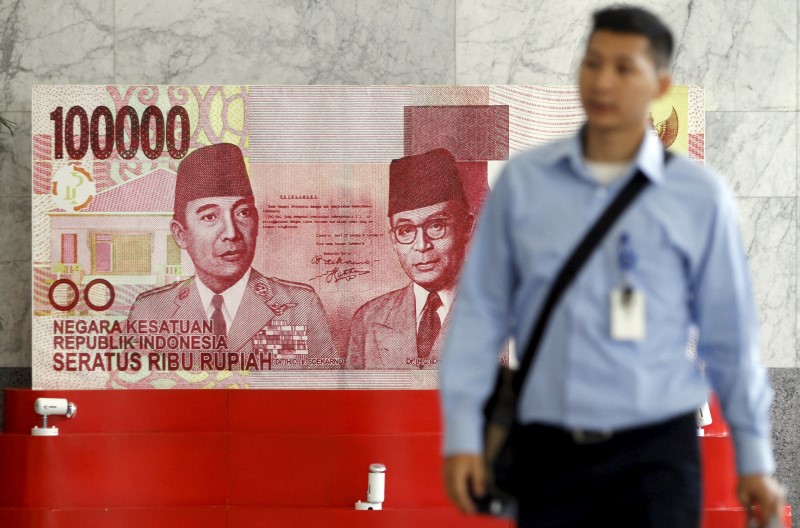By Fransiska Nangoy and Gayatri Suroyo
JAKARTA (Reuters) - Souring loans of Indonesian banks are expected to rise this year to their highest level since the global financial crisis following the sharp downturn in the global commodities market, rating agencies said on Wednesday.
The anticipated increases in non-performing loans (NPLs) and what are called special mention loans (SMLs) indicate how some Indonesian companies are struggling to repay debts, despite signs of a recovery this year in Southeast Asia's largest economy.
Indonesian authorities consider a loan non-performing, or bad, when payments are 180 days overdue. SMLs are 90 days past due.
Standard & Poor's said Indonesia's NPLs would likely rise to 3-4 percent of loans by the end of 2016 from 2.7 percent at December 2015.
The ratings agency sees SMLs rising to 6-8 percent of loans by year-end from 5.9 percent in 2015, the highest level since at least 2008.
S&P banking analyst Ivan Tan said more than 50 percent of SMLs typically turn into NPLs.
"We think that a sizable portion (of sour loans) would come from the small- and medium-sized enterprises segment, given that they are typically the most affected by an economic slowdown, and also the commodities sector, due to the price rout," Tan told Reuters.
Indonesian banks were hit by rising bad loans last year when economic growth slowed to 4.8 percent, the weakest in six years. The banking industry saw its overall net profit decline 6.7 percent in 2015, statistics by the country's banking regulator showed, as banks increased bad loans provisions.
This year, the economy is expected to grow faster. The government's growth target is 5.3 percent and the central bank projects 5.4 percent.
Fitch Ratings on Wednesday cautioned that if SMLs turn into NPLs, banks might not have sufficient provisions to cover the higher level of bad loans.
It said that while big banks are protected by their margins, second-tier lenders are more vulnerable as they have lower profitability and more exposure to commodity sectors.
Fitch's current outlook for the Indonesian banking sector is "negative" while S&P has "stable".
Two of Indonesia's largest banks, Bank Mandiri (JK:BMRI) and Bank Central Asia (JK:BBCA) , say they expect NPL levels to be flat this year. Bank Maybank Indonesia (JK:BNII) expects its level of bad loans to decline.

"We don't see new customers having trouble, but we don't think the NPL level will drop because that would have signalled the end of the downturn," Jahja Setiaatmadja, BCA's president director said.